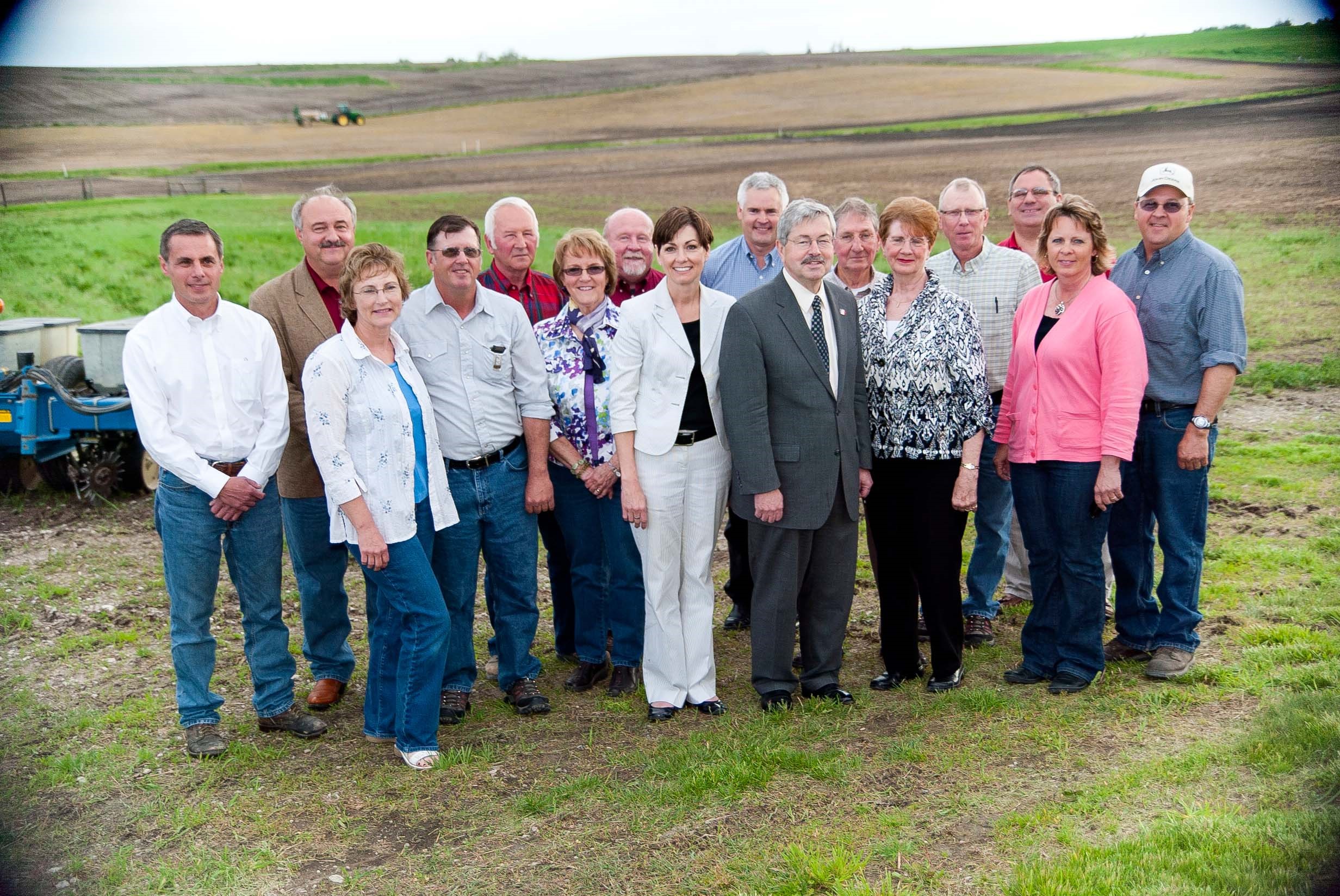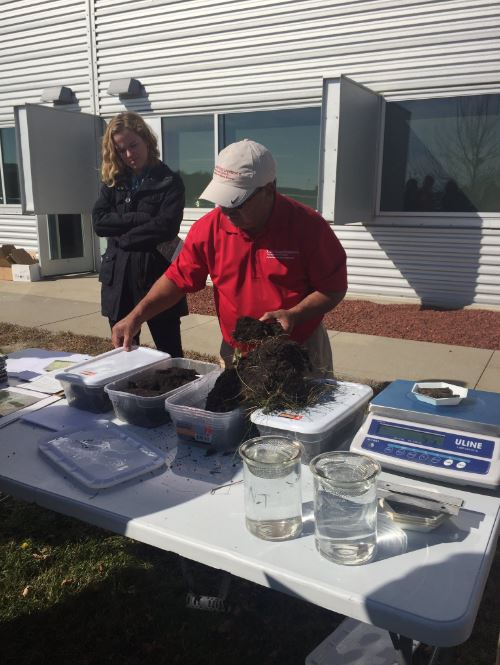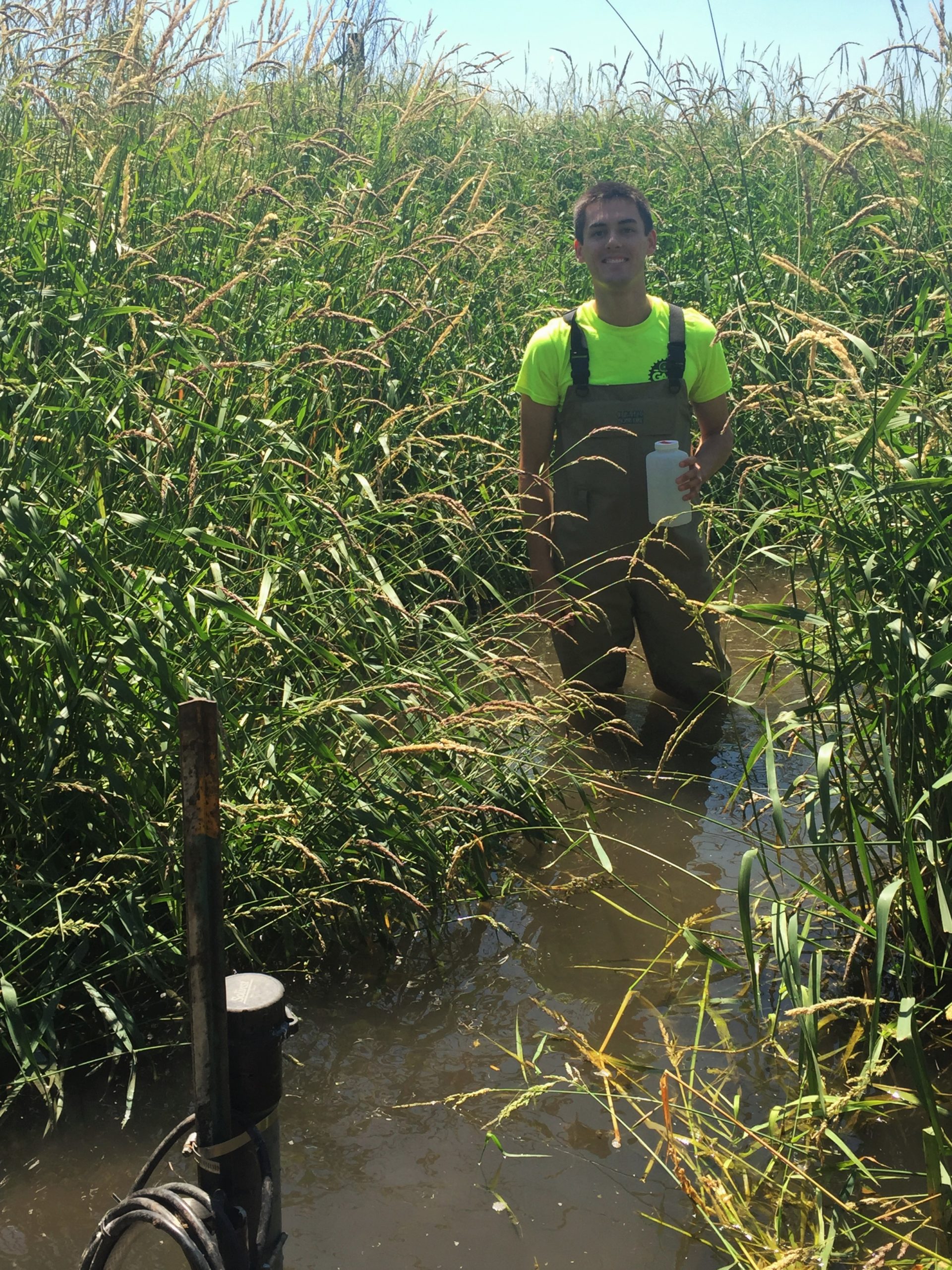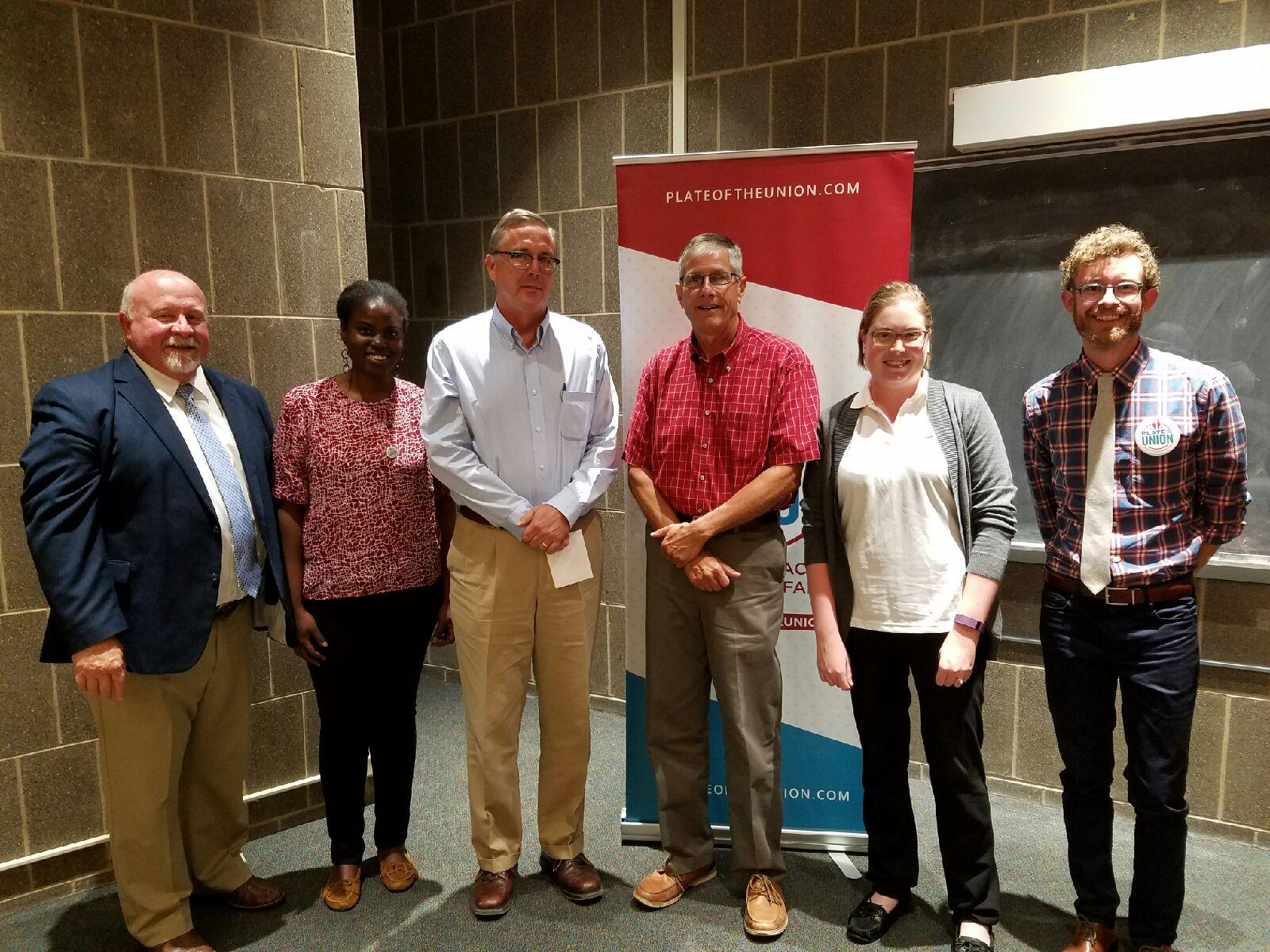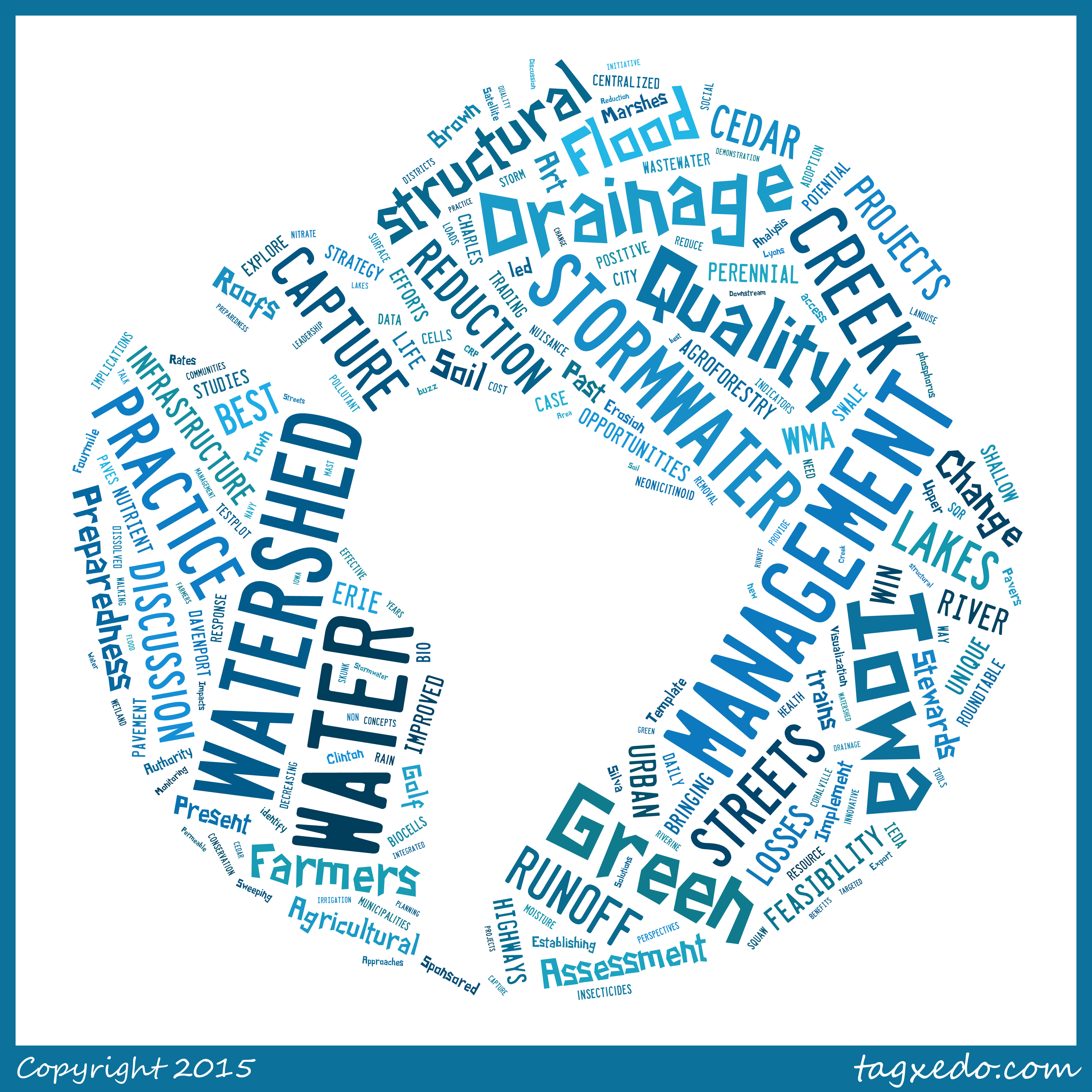Big data requires big software and big ideas. This can be especially true when it comes to managing our water-related resources. Today, we have access to numerous data points about our soil and water that can assist in understanding current landscape conditions and to plan for the future. Information such as this is not useful unless it can be analyzed by the experts using software such as Geographic Information Systems (GIS).
Continue readingGet to know the Rathbun Land and Water Alliance
The Rathbun Land and Water Alliance was established in 1997 to promote cooperation between public and private sectors in an effort to protect land and water resources in the Rathbun Lake Watershed. The Rathbun Lake Watershed is located in the six southern Iowa Counties of Appanoose, Clarke, Decatur, Lucas, Monroe, and Wayne and covers 354,000 acres. Rathbun Lake is the primary water source for Rathbun Regional Water Association, which provides drinking water to 80,000 people in southern Iowa and northern Missouri.
Continue reading2016 Fall Watershed Academy
A few weeks ago, approximately 70 Iowa-based water professionals came together for the Watershed Academy. This two-day event was co-organized by Iowa State University Extension & Outreach, Conservation Districts of Iowa, the Soil and Water Conservation Society, Iowa Department of Agriculture and Land Stewardship, and the Natural Resources Conservation Service. The Academy sought to provide the latest information on conservation practices and educational resources.
Continue readingGet to know the Prairie STRIPS Project
Two weeks ago, the Iowa Water Center staff attended a lecture on a study conducted with the Iowa State University Prairie STRIPS Project. Eduardo Luquin Oroz, graduate student at the University of Wageningen, presented results from examining the sediment deposition at the sites associated with this project as well as the strip width effects on sediment deposition. After leaving the presentation, the above quote immediately entered my mind.
Continue readingMonitoring in the Black Hawk Lake Watershed
Black Hawk Lake is an important recreational resource in Iowa. Recently, the lake has had high levels of algae and turbidity. High levels of algae is problematic because it inhibits the natural function of aquatic ecosystems. Turbidity, or the suspension of particles within a water body, also has a negative impact on water quality. The cloudiness within water systems can affect light penetration and can also reduce the volume water systems can hold, and therefore, reduce the space that aquatic habitat can live in. With support from Iowa Department of Natural Resources and other funding sources, such as the Iowa Water Center, we are monitoring the water quality at three sites in the Black Hawk Lake watershed. This is with the goal of determining the effectiveness of strategies used to address the algae and turbidity problems.
Continue readingPlate of the Union Water Quality Panel Discussion
This year, the Iowa State University Sustainable Agriculture Student Association (SASA) received a national grant from the Plate of the Union Campus Challenge. Part of this sponsorship included hosting a panel on water quality issues
Continue readingONE WEEK TO GO! Iowa Water Conference Update
With one week left to go, we are just about all set for the 2015 Iowa Water Conference! A little hiccup with the website last week (thanks to a university-wide outage) had us answering a lot of calls and emails about registration last week, but everything is up and running and rarin’ to go. A few key points:
–Early registration (a $25 discount) has been extended to this Tuesday, February 24 at midnight.
–Oral research presentations – a chance to showcase your research in a 15 minute presentation during breakout sessions – are still being solicited until Tuesday at midnight also. (The online form does have a deadline of Feb 20 – please disregard.)
-We are offering an optional workshop on the front end of the conference again in 2015 (Monday from 8-10) – this year we’re learning about Portland, Oregon’s Green Infrastructure efforts. The fee for this workshop is $50, which you can select as an option during registration, or register onsite the day of.
-At the tail end of the conference (Tuesday from 3-5:30), we are hosting a listening session on behalf of FEMA related to the new Federal Flood Risk Management Standard. More details, including documents regarding the Standards and the Draft Implementation Guidelines, can be found at the Iowa Water Center website’s event listing.
-We have a GREAT list of exhibitors, both commercial and non-profit/educational. They are:
COMMERCIAL:
- Applied Ecological Services, Inc.
- Bolton & Menk, Inc.
- Emmons & Olivier Resources, Inc.
- I + S Group
- OTT Hydromet
- Quick Supply Company
- RDG Planning & Design
- Roof Top Sedums LLC
- Upstream Technologies
Non-profit/Educational:
- ATEEC
- English River Watershed Management Authority
- Iowa Children’s Water Festival – Iowa Association of Water Agencies
- Iowa Department of Agriculture & Land Stewardship
- Iowa Environmental Council
- Iowa Flood Center
- Iowa Floodplain and Stormwater Management Association
- Iowa Learning Farms and Water Rocks!
- Leopold Center for Sustainable Agriculture
- Natural Resources Conservation Service
- Rathbun Land and Water Alliance
- Southfork Watershed Alliance
- U.S. Geological Survey
That’s it for now – the long and short of it, if you haven’t registered, there’s still time! We have a fantastic program this year and wouldn’t want anyone to miss it.
FUNDING ANNOUNCEMENT: 104(g) National Competitive Grants
The 104(g) National Competitive Grants program is one of three grant programs administered annually by the Iowa Water Center in coordination with the National Institutes for Water Resources (NIWR).
Funding alert – the National Institutes for Water Resources in conjunction with the US Geological Survey has issued their call for proposals for the 2015 104(g) National Competitive Grants program.
Here’s the scoop…
Proposal URL (<——CLICK ME!)
Due Date: February 19, 2015
Submit to: niwr.net (hint: you have to create a log-in to get submit, so you may want to get in the system sooner rather than later to play around)
Award maximum and duration: 1-3 years, $250,000 maximum.
Scope: Proposals must focus on “water problems and issues of a regional or interstate nature”. Collaboration between organizations and agencies (particularly USGS) are highly encouraged and USGS partnerships receive extra weight in evaluation.
2015 Priorities:
- Evaluation of innovative approaches to water treatment, infrastructure design, retrofitting, maintenance, management and replacement.
- Exploration and advancement of our understanding of changes in the quantity and quality of water resources in response to a changing climate, population shifts, and land use changes; including associate economic, environmental, social, and/or infrastructure costs.
- Development of methods for better estimation of water supply, both surface and groundwater, including estimation of the physical supply and of the economic supply of water.
- Development and evaluation of processes and governance mechanisms for integrated surface/groundwater management.
- Evaluation and assessment of the effects of water conservation practices, as well as adoption, penetration and permanence.
Other interesting information:
Iowa has seen some success with getting proposals in this competition funded in the past few years, most recently a project in 2014 from University of Iowa PI Dr. Gabriele Villarini.
The Iowa Water Center reviews all proposals after they have been submitted and must approve them in order for them to be considered by the selection committee. While your application SHOULD be complete at the February deadline, if there are any changes needed, IWC staff will be in touch before final approval.
Have any questions? Just send a message to Melissa Miller and we’ll get it taken care of!
ANNOUNCEMENT: The Iowa Water Conference 2015 in a few words
We are SO CLOSE to opening registration for the 2015 Iowa Water Conference. To celebrate, we took all the titles of the seriously fantastic programming for this year’s conference and made a pretty tag cloud.
Beautiful. Can’t wait to share the finalized agenda with you next week!
www.iowawaterconference.org
